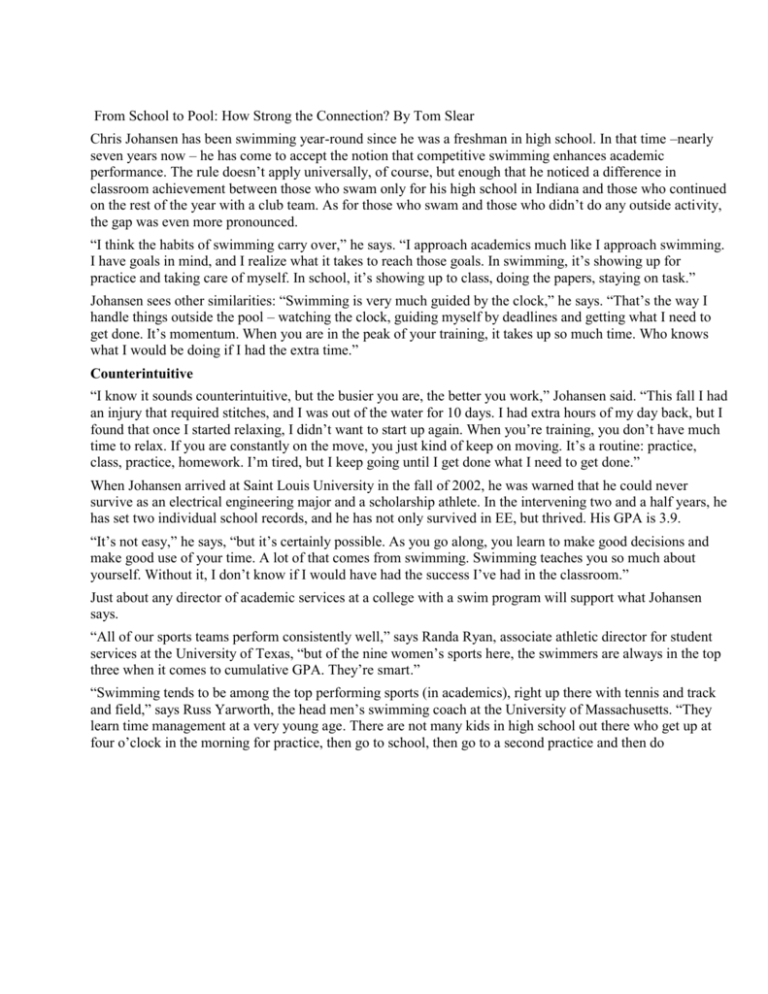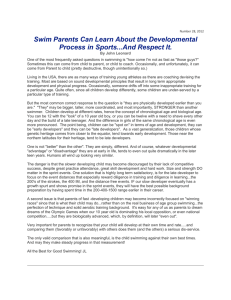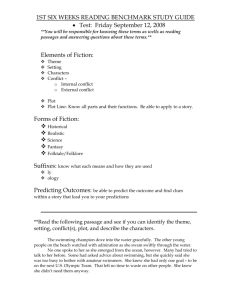From School to the Pool
advertisement

From School to Pool: How Strong the Connection? By Tom Slear Chris Johansen has been swimming year-round since he was a freshman in high school. In that time –nearly seven years now – he has come to accept the notion that competitive swimming enhances academic performance. The rule doesn’t apply universally, of course, but enough that he noticed a difference in classroom achievement between those who swam only for his high school in Indiana and those who continued on the rest of the year with a club team. As for those who swam and those who didn’t do any outside activity, the gap was even more pronounced. “I think the habits of swimming carry over,” he says. “I approach academics much like I approach swimming. I have goals in mind, and I realize what it takes to reach those goals. In swimming, it’s showing up for practice and taking care of myself. In school, it’s showing up to class, doing the papers, staying on task.” Johansen sees other similarities: “Swimming is very much guided by the clock,” he says. “That’s the way I handle things outside the pool – watching the clock, guiding myself by deadlines and getting what I need to get done. It’s momentum. When you are in the peak of your training, it takes up so much time. Who knows what I would be doing if I had the extra time.” Counterintuitive “I know it sounds counterintuitive, but the busier you are, the better you work,” Johansen said. “This fall I had an injury that required stitches, and I was out of the water for 10 days. I had extra hours of my day back, but I found that once I started relaxing, I didn’t want to start up again. When you’re training, you don’t have much time to relax. If you are constantly on the move, you just kind of keep on moving. It’s a routine: practice, class, practice, homework. I’m tired, but I keep going until I get done what I need to get done.” When Johansen arrived at Saint Louis University in the fall of 2002, he was warned that he could never survive as an electrical engineering major and a scholarship athlete. In the intervening two and a half years, he has set two individual school records, and he has not only survived in EE, but thrived. His GPA is 3.9. “It’s not easy,” he says, “but it’s certainly possible. As you go along, you learn to make good decisions and make good use of your time. A lot of that comes from swimming. Swimming teaches you so much about yourself. Without it, I don’t know if I would have had the success I’ve had in the classroom.” Just about any director of academic services at a college with a swim program will support what Johansen says. “All of our sports teams perform consistently well,” says Randa Ryan, associate athletic director for student services at the University of Texas, “but of the nine women’s sports here, the swimmers are always in the top three when it comes to cumulative GPA. They’re smart.” “Swimming tends to be among the top performing sports (in academics), right up there with tennis and track and field,” says Russ Yarworth, the head men’s swimming coach at the University of Massachusetts. “They learn time management at a very young age. There are not many kids in high school out there who get up at four o’clock in the morning for practice, then go to school, then go to a second practice and then do




